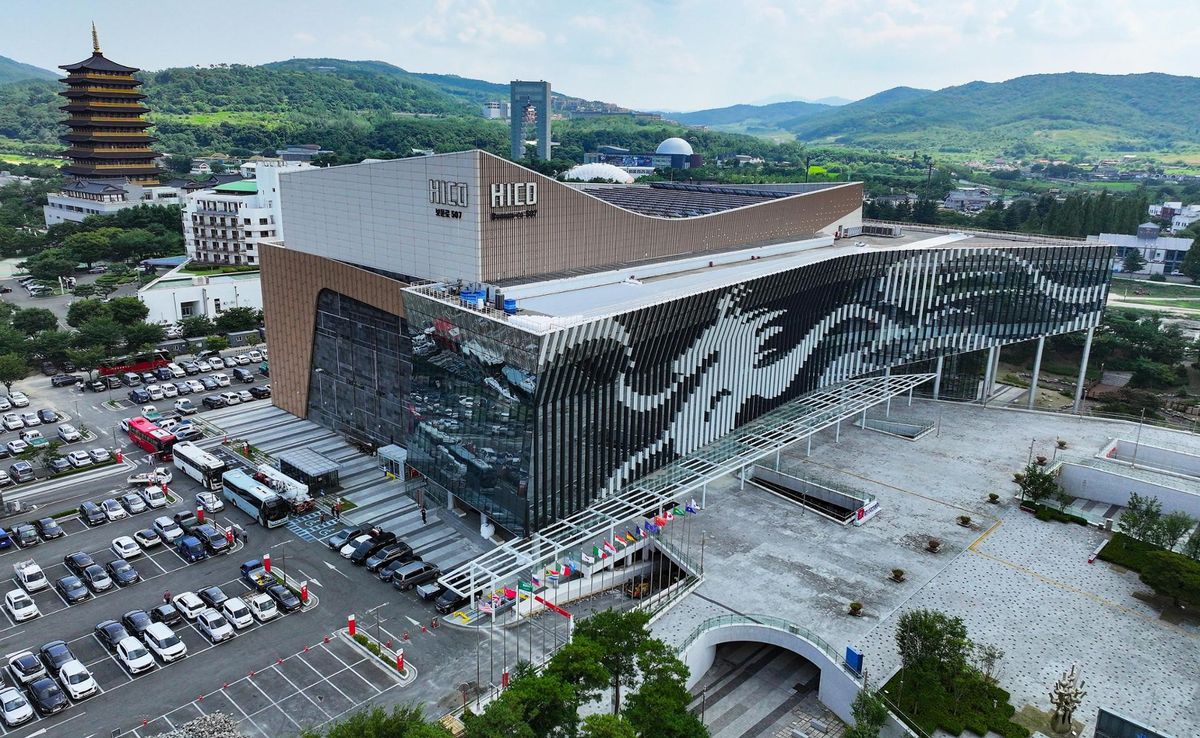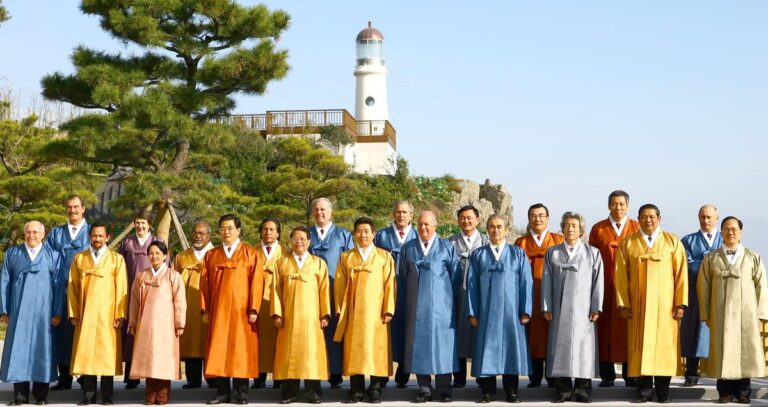In November 1989, 12 economies gathered in Canberra, Australia, to launch Asia-Pacific Economic Cooperation (APEC), a forum created to promote sustainable growth and shared prosperity in the region.
Both Korea and APEC have continued to flourish in the 36 years since. As of 2023, the forum has grown to 21 member economies, representing approximately 3 billion people and a combined real gross domestic product of $56.9 trillion — around 61 percent of the global total.
Building on that growth, Korea has evolved from a founding member into an agenda-setter, most notably with the 2005 summit in Busan. It is now poised to play a key role once again when the summit opens this week in Gyeongju, North Gyeongsang Province.
Korea’s rise within APEC reflects its transformation from a developing nation into a regional leader, now shaping discussions on trade, innovation and sustainable, inclusive growth across the Asia-Pacific.
The country has been instrumental in guiding APEC’s direction, from the 1991 Seoul Declaration on open trade and regional cooperation to the 1994 designation of the Korea Institute for International Economic Policy as the Korea National Study Center for APEC.
Its prominence in the forum grew further when it hosted the 2005 APEC summit in the southwestern port city of Busan.
Leaders of 21 economies wearing durumagi, a Korean traditional hanbok, pose after the APEC summit in Busan, Nov. 19, 2005. Yonhap
The decision to stage the summit outside the capital city of Seoul reflected the government’s goal of balanced regional growth. Busan was chosen for its strong infrastructure and proven ability to host large international events, including the 2002 Asian Games.
The forum’s agenda in 2005 contrasts sharply with the current protectionist environment, marked by escalating tariff disputes and mounting U.S.-China tensions.
In the 2005 summit declaration, leaders reaffirmed the 1994 Bogor goals — APEC’s long-term commitment to free and open trade across the Asia-Pacific — and pledged to support the multilateral trading system while advancing high-quality regional and free trade agreements.
The Busan summit also broadened its agenda beyond trade, prompting members to strengthen joint efforts for disease control amid the spread of avian influenza, a notable step in linking public health with economic cooperation.
Building on the momentum of the 2005 summit, Korea has deepened its ties with other APEC economies, which accounted for 74.7 percent of Korea’s exports and 67.5 percent of its imports as of 2023.

Hwabaek International Convention Center, the venue for this year’s APEC summit in Gyeongju, North Gyeongsang Province, is seen in this August 2025 file photo. Yonhap
Another key development came in 2015, when Korea was confirmed as the host of the 2025 APEC summit, marking its second time hosting the forum. Gyeongju, the capital of the Silla Kingdom from the first century B.C. to the 10th century, was selected as the host city.
Under the theme of “Building a Sustainable Tomorrow: Connect, Innovate, Prosper,” this year’s summit will focus on artificial intelligence (AI) cooperation and demographic change. A key issue will be how strongly APEC can emphasize free trade, one of its core agenda items for decades.
Members are reportedly finding it difficult to agree on language that matches previous APEC declarations reaffirming support for a rules-based multilateral trading system with the World Trade Organization at its core.
“Whether APEC can reaffirm its commitment to free trade this year will depend largely on Korea’s leadership as the host,” said Kim Tae-hwang, a professor of international trade at Myongji University.
“With protectionism resurging, it is crucial for this summit to express concern over that trend and set a clear course for cooperation in areas such as AI and other key sectors,” Kim added.
Images are for reference only.Images and contents gathered automatic from google or 3rd party sources.All rights on the images and contents are with their legal original owners.

